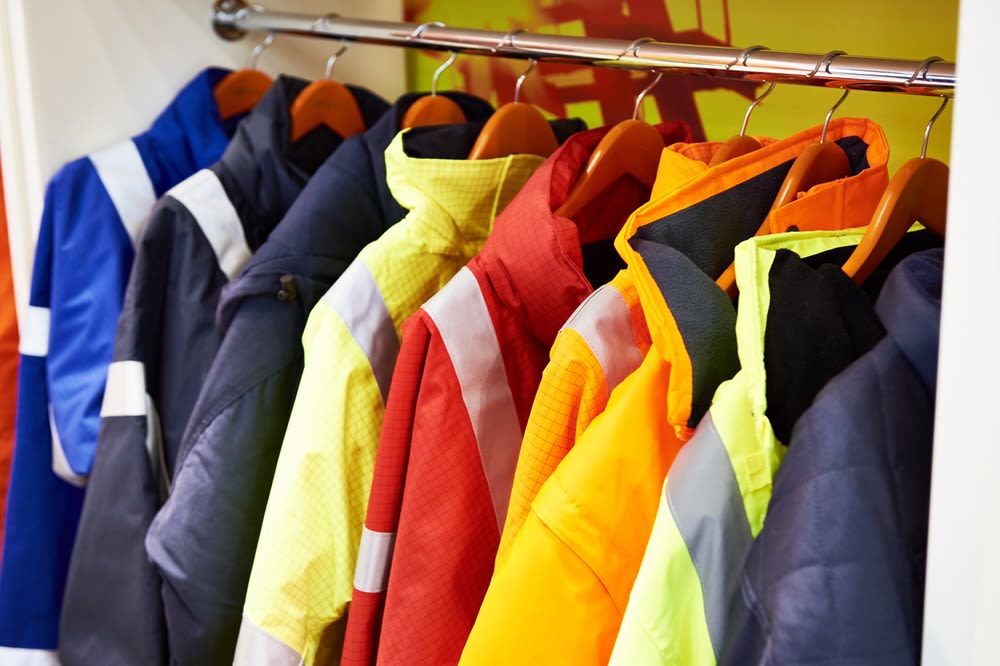
Many businesses require work uniforms that can take a beating without sacrificing a wearer’s comfort. Many types of work, notably those that involve significant amounts of physical labor or working outdoors, can be harsh enough on fabrics that failing to choose wisely may result in a company spending much more than it intends on maintenance and replacement, even if the initial cost of the uniforms was lower than the alternatives available.
By outfitting workers in quality, comfortable, and functional fabrics, employers can end up saving significant money and time in the long run. A uniform cleaning service can keep your uniforms clean without wearing them out. Keep reading to learn about the top six workwear fabrics.
The Best Workwear Fabrics for Durability & Comfort
In terms of durability and comfort, a few workwear materials stand out above the rest, including these:
1. Linen
Linen is a fabric produced from flax, often considered extremely well suited to hot environments. It is a strong, extremely durable fabric that dries easily. While more costly than cotton, that extra cost is on account of the many benefits one gets from the extra investment.
Linen is also typically considered a comfortable fabric, although it isn’t as soft as cotton. At the same time, this becomes less of an issue over time. Linen starts to become less rough with multiple washes. Over time, many people find it to be as comfortable as cotton.
2. Cotton
Cotton, as is often the case when discussing fabrics, is the standard by which most people compare other materials. It is affordable, soft, fairly durable, and extremely easy to source.
To call it a common choice might give a reader the impression that there is some obvious alternative a business is missing, especially if cost is less of a consideration, but the reality is that it works as a workwear material for most purposes. While there are hardier materials (including linen), cotton fabrics can survive multiple years of hard use if properly cared for.
3. Flannel
Flannel is a material that can be somewhat challenging to talk about as it varies in qualities depending on how it is made. Originally, flannel was produced from wool, but slowly, it has been more common for flannel to be made with cotton and other materials.
Durability is generally a priority with flannel regardless of the materials used to make it. The stereotype of the hardworking lumberjack clad in flannel exists for a reason. Flannel is an excellent material if someone is going to do tough work but still needs to work in comfort.
While flannel is often associated with a plaid pattern, it can also come in the solid colors many employers prefer for workwear. Flannel isn’t usually a good choice for hot environments, as it is known for being warm and fuzzy. If choosing workwear for colder weather, consider a more breathable material like cotton.
4. Polyester
Polyester is a synthetic fabric (typically) made from petroleum. It has a mixed reputation, in part because it is extremely affordable to the point where some begin to suspect it is of dubious quality and also because it is admittedly the material many of the lowest quality clothing items are made from. However, polyester is actually a strong, durable fabric that is highly resistant to water.
It’s a perfectly reasonable workwear material to choose, especially for wet environments. However, it’s also not very environmentally friendly and isn’t usually a good option if a business is trying to be eco-conscious.
5. Wool
Wool is a breathable, durable fabric that is good at keeping wearers warm even if the material is wet. It’s a very popular low-maintenance option for workwear and is a great choice for colder environments. Wool is also flame retardant; it can burn but won’t do so easily.
For many employers, the choice of workwear material will come down to wool versus cotton. Wool is a bit more expensive, but it has some unique qualities (like functioning well when wet and being flame resistant) that make it a better choice for certain working conditions.
6. Denim
Made from cotton, denim is a very sturdy fabric that we most often associate with blue jeans. Denim perhaps trades some degree of comfort for durability, but people regularly wear denim clothing without issue.
When it comes to denim, the gain in durability is significant. This is a tough material that has its origins primarily in being used for work clothes. While not at the level of genuine safety gear, denim can handle very rough conditions and may protect a wearer from what would otherwise be nasty scratches and impacts with no or minimal damage.
Let Alsco Uniforms Handle Your Workwear Needs
Overall, cotton remains a strong contender for most companies’ needs when it comes to durability and comfort. At the same time, all the options discussed in this article have their advantages. For especially rough work, flannel and denim may be the two materials with the greatest edge over their competition.
Importantly, the focus here has specifically been on durability and comfort (a reasonable focus for many companies, especially if the workwear will be used outdoors or workers will be engaging in hard labor). For further discussion on materials, check out this perspective on how to balance fabric quality and performance.
If you’re looking to source your workwear from a company you can trust, Alsco Uniforms prides itself in being a brand that has operated in this industry for over a century. We encourage you to learn more about our uniform rental services and see all the different options we offer our clients, including custom work shirts.
We can outfit all your employees in the workwear fabric that makes the most sense for your business. Contact our team directly to learn more about how we can simplify your uniform and laundering processes.
